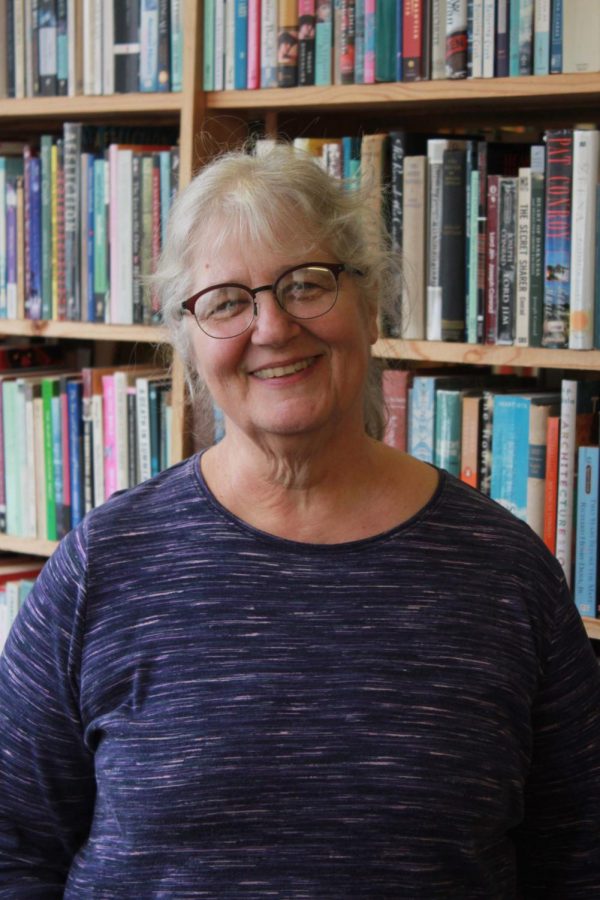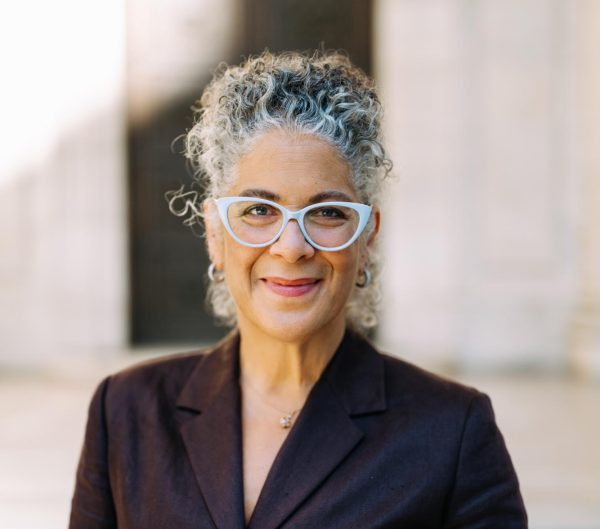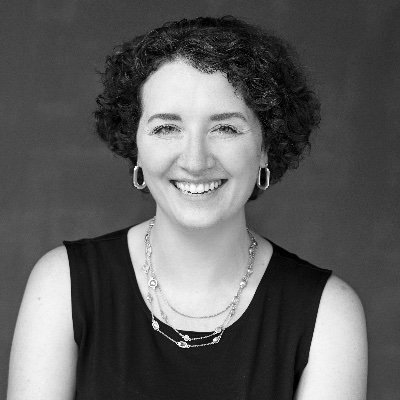OTC: Krista Long, Owner of Ben Franklin’s
Krista Long
Krista Long, an Oberlin native, is the owner and operator of Ben Franklin and MindFair Books. She is a highly active member of the Oberlin community. In addition to owning two small businesses, Long has children who went to Oberlin public schools. She has also participated in Cleveland 101, an orientation program that introduced incoming first-years to the area and taught them how best to navigate the Oberlin and greater Northeast Ohio community during first-year orientation.
This interview has been edited for length and clarity.
I’m curious about your experience as a business owner in a small town and the community that you’ve found here.
I’ve worked in different capacities in downtown Oberlin; in high school, I worked in the co-op bookstore, and then I went away to college, came back, and worked there. It was quite a while ago, but the connections I made there were really good, and that store kind of gave me an idea of what a community store can be like. You know, ’cause there were activities, we had this poster room upstairs, we had a train room upstairs — it was a co-op, so it was community-oriented. … So then when I bought Ben Franklin’s, I tried to go in that same direction.
A bookstore is always a gathering place for the community. Four or five years ago we really ramped up our events related to books and created that seating area in the middle of the store to try to give a comfortable space for readings or gatherings. … I like the way different members of the community — and even from the wider area outside of Oberlin — come to Ben Franklin for the books, for the framing, and just for basic needs. And people’s paths cross — well, they cross mine, for sure. And I like seeing all that, you know, rubbing shoulders with a big variety of people. That’s been good for me.
Can you talk about how you’ve attempted to bridge the gap between Oberlin College and the city of Oberlin?
That is what this store is about and always has been throughout its history. Since 1935, it’s been a place that brings both of those communities together, and personally bringing me into contact with both communities. Even in 2001, before I owned Ben Franklin’s, I had two little kids and hired College students as babysitters. It was one of the best things I did for my kids. Bringing that vitality and youthfulness of the student population was really important to me and my kids. Also, I had both College and high school students working for me, so that brought those two communities together, and the bookstore definitely brings those kids together. … I know there are tensions between those communities, but I always feel like I’m in a middle place. I am advocating for the community to the College, and advocating for the College to the community, and I like that position because I feel like I am aware of the pluses of both sides, the minuses too, but I try to focus on the pluses.
How do you feel that students can be more engaged in bridging College and town communities?
I just encourage students to get off campus, even if it’s just coming downtown, going to Slow Train, The Feve, any of the restaurants, and Ben Franklin. … Just try to talk to people — if someone is sitting next to you at Slow Train, just reaching out is important.
Specifically with regard to MindFair, how do books end up here and what decisions do you make around what kind of books you have?
Yeah, so, I don’t make a lot of those decisions today. Dick Riley is our book buyer, and he definitely chooses the new releases that come. And, of course, he and I both have been selling books for a long time in this community, so [we] have a real sense of what people are interested in. … The book selection really reflects the community that we’re in. We also work with a couple who does a lot of buying from remainders and overstock. We can’t really put a lot of dollars into it, but they have some other businesses, so they bring books to us on a consignment basis. And again, because they’ve been doing that for a long time, like maybe even 10 years, they have a real good sense of what sells. The longer you’ve been in book-buying, the more you can kind of find those little things that fit the niches. And just by paying attention to what does sell, you figure out what will sell.
I’m curious how you’ve seen the town and College evolve and change over your time here.
Yeah, it definitely has. I guess … it’s definitely part of a bigger picture. I mean, when I was growing up and even when I was working downtown as a high school student, as I said, we still had two drugstores, a men’s clothing store, a women and children’s clothing store, more barber shops, a shoe store, two hardware stores. … [The town] was already starting to change, which was brought on by the malls. So the malls pulled a lot of that business away, and stores like clothing stores just really couldn’t make it here anymore. And that process has continued slowly as far as the downtown business community is concerned. Now, people have to go out of town or shop online in order to get a lot of things that they need, because it’s just not worth it to us — those few retailers that are down here.
On the other hand, [Oberlin has] become much more of an entertainment destination. So a lot of people come into town to eat in all of the great restaurants that we have here, or to come to the movie theater, to come to plays, talks, concerts, all of that stuff. I mean, they’ve always done that, but it’s more true today than it was. So we’re kind of a destination. And even in terms of history, we have people doing the history tours in the summer; the Underground Railroad museum is about to launch. So there’s that history that draws people here, as well as a tourism thing. So that’s kind of a major shift.
The demographics at the College have changed. … Younger faculty are looking for more of an urban lifestyle, urban setting. So that’s changed the number of College families that are living in town, I think. I mean, still plenty do, but it’s less than before. And it’s reflected in our school demographics. When I graduated, our graduating class was, like, 135. I know that’s tiny, but it’s tinier today. My daughter’s graduating class in 2014 was about 85, so that’s pretty significant, and it is an indication of the number of families living here. … There’s lots at the high end and we have a fair amount of Section 8-type housing, but there’s not a lot in the middle. And we’re working on that right now, with the creation of a land trust, which is an exciting thing.
Do you feel like it’s important for students to learn about the history of this community and understand it beyond the information you get on an Admissions brochure?
Yeah, absolutely. I don’t know why you wouldn’t want to … I was out there shoveling the walk this morning and I was thinking this thought: It’s kind of like, how would you act if you were going to a foreign country? Not that we’re foreigners here, you know, but you’re in a new place. There’s new culture, new food, new people, new history. I mean, if you were traveling you would seek it out and want to find out about it. I know you’re not here traveling, but I just think a curious mind is critical to success in the world. You have to be interested in where you are, what you are, and something different than yourself and different than your prior experience. You have to be open to it, and that’s why I think it’s really critical.










